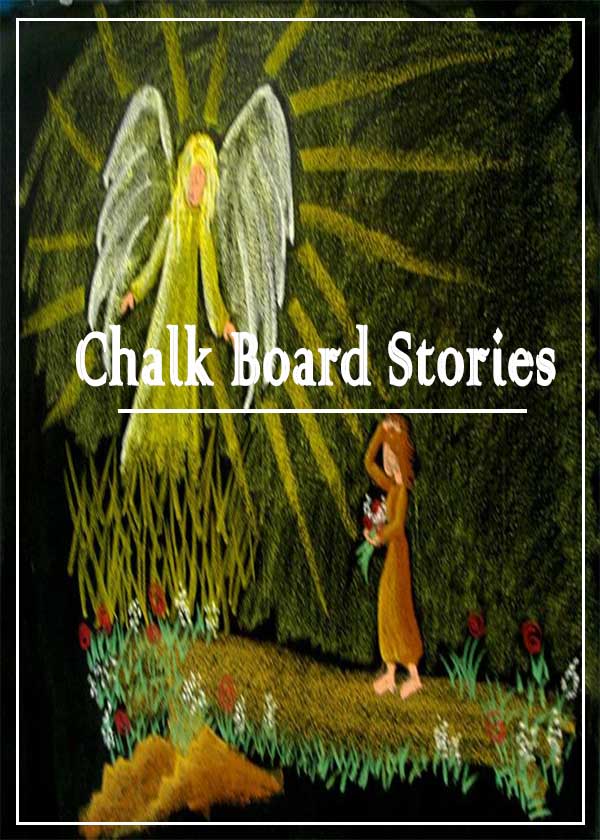Chalk Board Stories
Chalk Board Stories


As a 10-year-old child I realized that I learnt more by writing and while writing to avoid erasing, to maintain impressive handwriting to capture the teacher’s attention ,to obtain a star in my workbook and a few encouraging words of appreciation from the teacher. Learning by play way method were important milestones of my life. Now as an adult my self-confidence, good presentation skills and dedication to work are all attributes that I would associate with my school life. As an experienced teacher I share my experiences on tackling student issues in classrooms. I’m reminded of this conversation between a pencil and eraser.
The pencil apologies to the eraser that, “I’m sorry Mr. Eraser, whatever mistakes I make you erase them and save me.”
The eraser replies,"That’s my job and I enjoy correcting others mistakes but in the process I enjoy sacrificing myself for a good cause."
There’s the third party in this process the paper that bears the pain of impression by the pencil and erasing by the eraser. Children should be open minded to accept positive criticism, to ignore negative criticism instead correct mistakes for a successful life. Correcting mistakes depends on the attitude of a person.
I have dealt with students from middle school to high school, 12-18 years is a crucial growth period in a student’s life. At 22 I joined as a young teacher to address issues of teens with financial and emotional problems. I met more aggressive or morose students who were unable to balance learning and life together. Learning was not fun for some as it was necessity, as first-generation learners they had to struggle to survive in this world of competition. That’s when I decided to approach personally in order to reach them, understand them and refine them. I spent more time before /after school hours to talk to students, help them identify their talents, think positively and understand from other’s perspective. It was a Himalayan task for teenagers to accept the truth and correct their attitude. I started introspecting the root cause of all these behaviors. The change in our education system to face the competitive world makes a child stressed out and they lose interest in studies. We have heard about the “Shanthi Niketan’ school blended with nature which was a dream school of Rabindranath Tagore. Children should learn at their own pace, about subjects of their interests with self-confidence and self-motivation. Teachers or acharyas should be facilitators to encourage, guide and help them reach their goal of learning. It should be self-disciplined and self-governed. We should be able to create jobs for unique skills. Abiding by the modern-day crisis and current situations these are my suggestions to make school life enjoyable :
Teachers can set up their classrooms to provide the structure and learning tools necessary to help model and teach self-regulation.
A positive environment: The classroom should feel like a safe space where strengths are emphasized. When a problem behavior occurs, try not to take it personally or immediately correct the child in front of others. Instead, act as an observer with the goal of figuring out why the behavior is occurring. Then address the behavior once the child has cooled down.
Clear expectations: Schedules, procedures, and an established routine help students understand what to expect and create an environment that feels structured and safe.
Instruction on study skills: As teachers, we often focus on the curriculum, but in order to access content students need skills like the ability to organize their materials, manage their time, stay on task, read with comprehension, and retain and practice what is learned for later use on graded activities. Teaching study strategies to the whole class will help all students to become more independent learners.
Scaffolding: is breaking learning into chunks and then providing a strategy or a structure to make it easier for students to be able to accomplish each chunk of learning. In order to effectively scaffold instruction, you need to know what a child is capable of doing on their own.
Analyze behavior: When students seem off task or even shut down and refuse to complete work, sometimes it’s because the work is too difficult for them and they’re frustrated. I found that students often use this behavior because it has worked for them in the past by allowing them to escape the undesirable task and avoid the embarrassment of looking “dumb.” Instead of recognizing that they’re frustrated with the work, the student will often express frustration with the teacher for making them complete the assignment.
I found that thinking about behavior objectively, as a skill to be taught rather than simply as good or bad, was immensely helpful in my ability to guide children in learning to control their behavior. Some children enter school without the self-regulation skills necessary for school success. We must meet these children where they are and teach them the skills they need to be successful citizens of tomorrow.



















